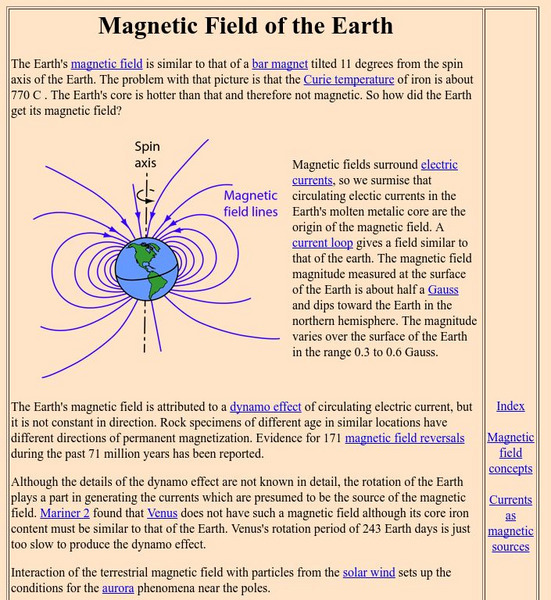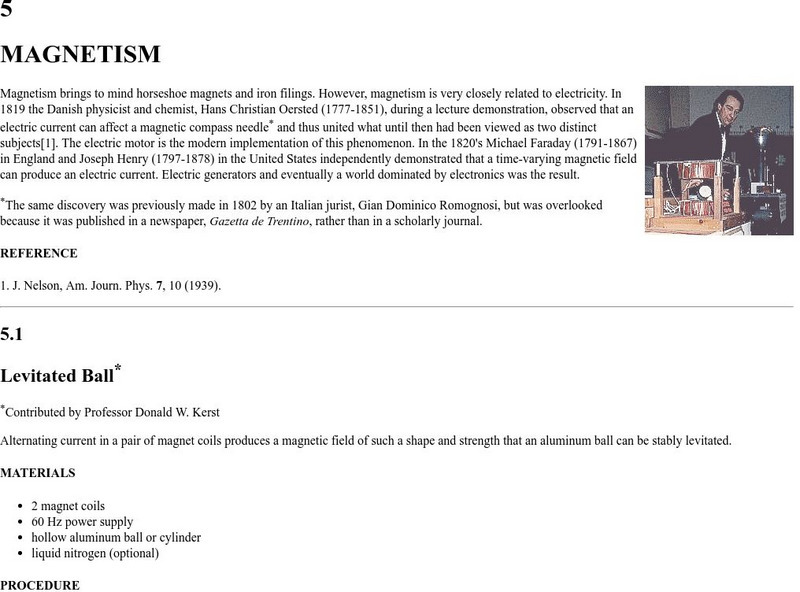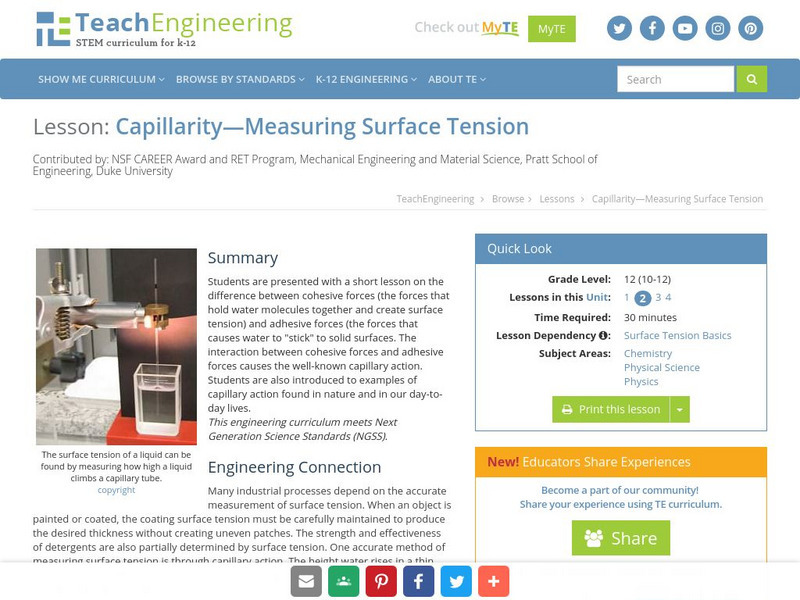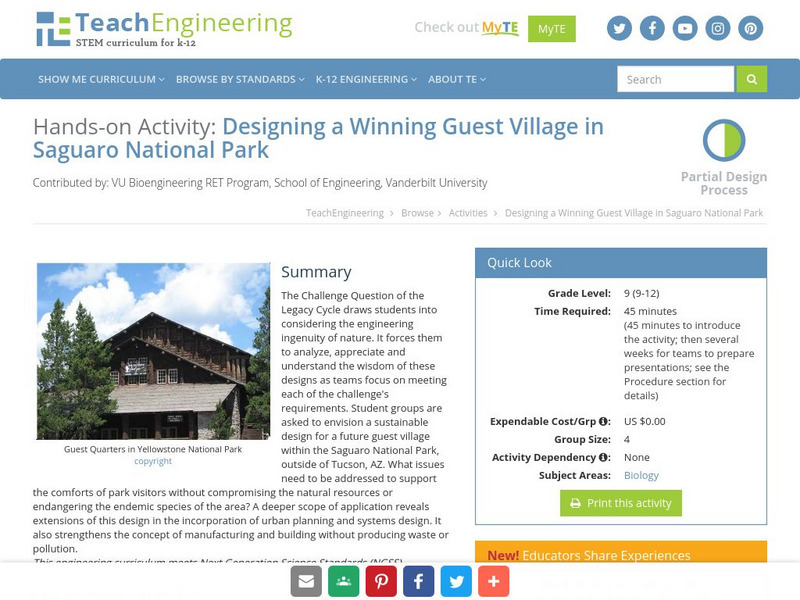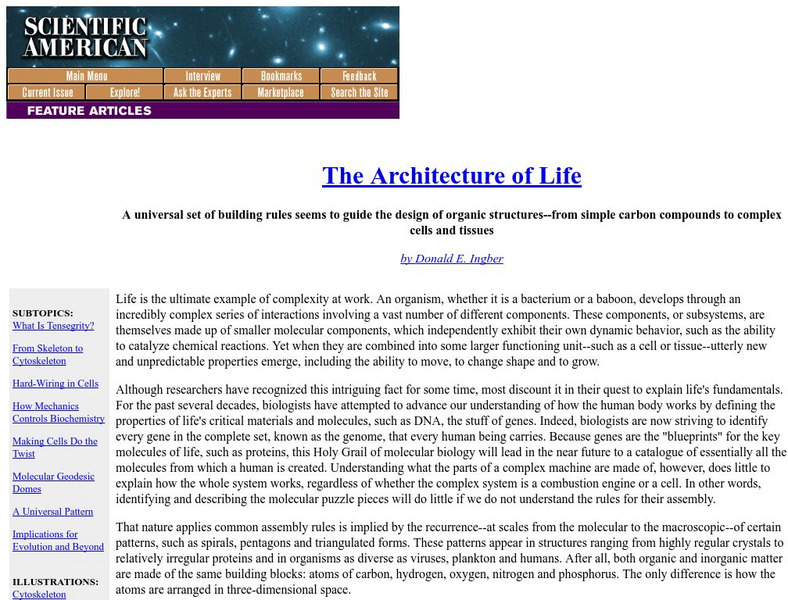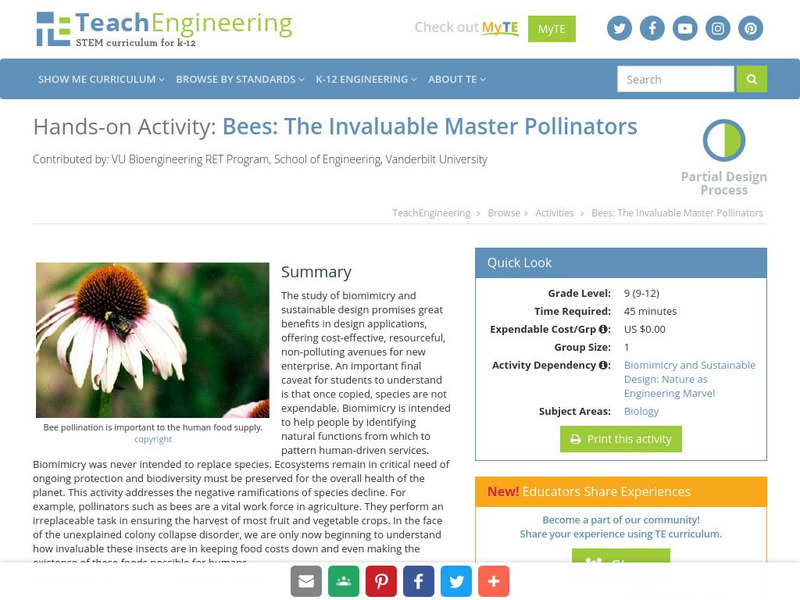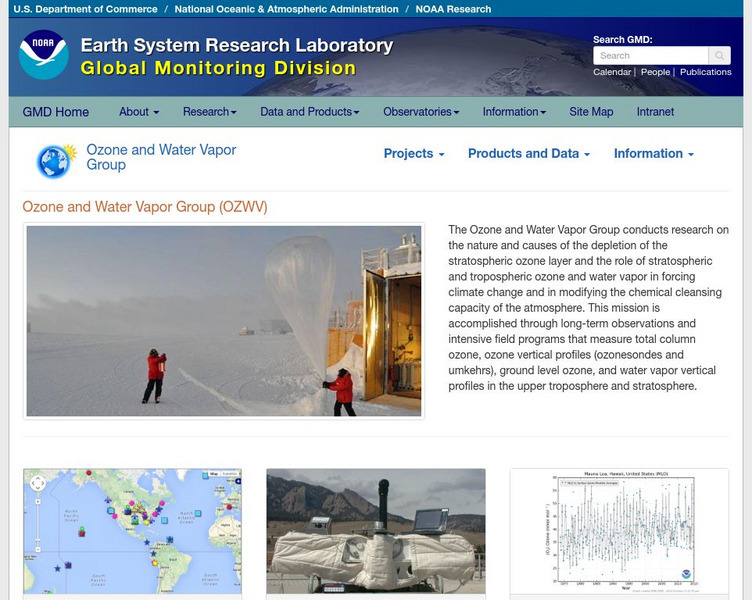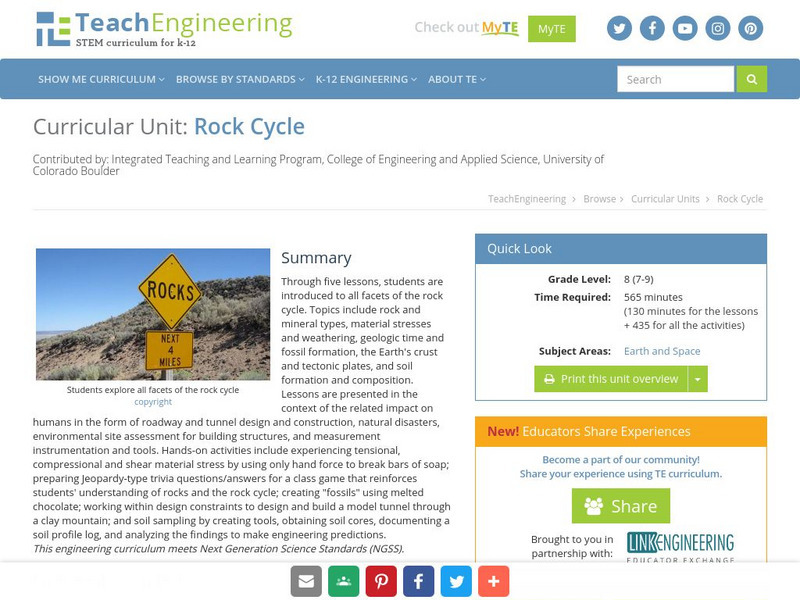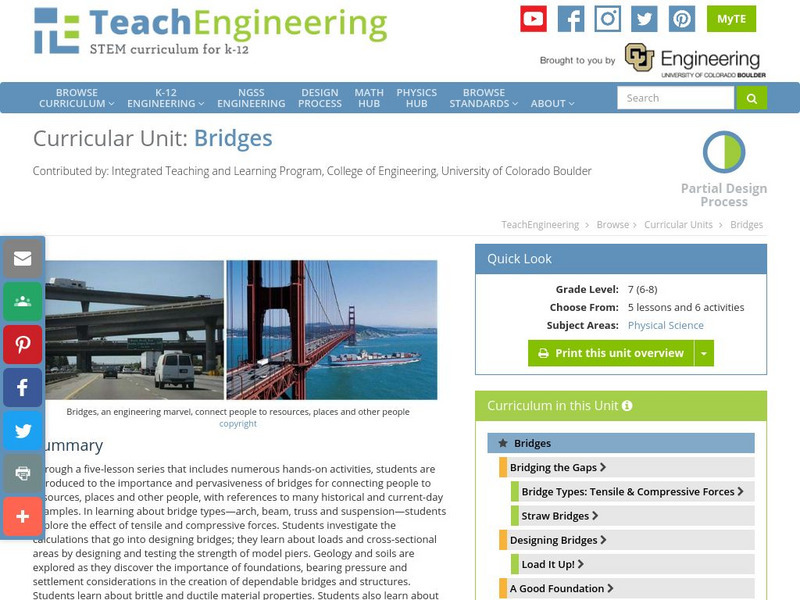Georgia State University
Georgia State University: Hyper Physics: Magnetic Field of the Earth
This site is a description of the earth's magnetic field, including a section on the "Dynamo effect," a proposed explanation for the origin of the earth's magnetic field.
Science and Mathematics Initiative for Learning Enhancement (SMILE)
Smile: Fish and Clip
Primary activity to help "students understand some of the characteristics of magnets." Would work well in conjunction with a theme on underwater creatures or fish.
Other
Family Education Network: Heavy Metal
An engaging site that provides interesting facts about magnets. Solve a problem and discover how to create a compass.
University of Wisconsin
University of Wisconsin: 5 Magnetism
From an online teacher demonstration book. Includes a description and explanation of five demonstrations on a variety of magnetism topics. Interesting and captivating demos.
TeachEngineering
Teach Engineering: Surface Tension
Surface tension accounts for many of the interesting properties we associate with water. By learning about surface tension and adhesive forces, students learn why liquid jets of water break into droplets rather than staying in a...
TeachEngineering
Teach Engineering: Capillarity Measuring Surface Tension
Learners are presented with a short lesson on the difference between cohesive forces (the forces that hold water molecules together and create surface tension) and adhesive forces (the forces that causes water to "stick" to solid...
TeachEngineering
Teach Engineering: Adaptations for Aeronautical Engineering
This activity first asks the students to study the patterns of bird flight and understand that four main forces affect the flight abilities of a bird. They will study the shape, feather structure, and resulting differences in the pattern...
Other
University of the Arts, London: Manuscripts at Universal Leonardo
This gallery of 22 excerpts from Leonardo's notebooks is accompanied by historical information and links to additional explorations of his interests in the forces of nature, light and vision, and imagination and invention. The drawings...
TeachEngineering
Teach Engineering: Designing a Winning Guest Village in the Saguaro National Park
The Challenge Question of the Legacy Cycle draws the student into considering the engineering ingenuity of nature. It will force him to analyze, appreciate and understand the wisdom of these designs as the student team focuses on meeting...
University of California
Organic Structures:the Architecture of Life
Article discusses how objects in nature are held together through balanced forces. Scroll midway down to find info on microtubules and microfilaments. Links to excellent electron micrographs.
TeachEngineering
Teach Engineering: Bees Are Master Pollinators
The study of biomimicry and sustainable design promises great benefits in design application. It affords means by which to promote cost-effective, resourceful, non-polluting avenues for new enterprise. These "blueprints" have existed...
NOAA
Noaa: Cmdl: Ozone and Water Vapor Group
The Ozone and Water Vapor Group conducts research on the nature and causes of the depletion of the stratospheric ozone layer and the role of stratospheric and tropospheric ozone and water vapor in forcing climate change.
Community Learning Network
Community Learning Network: Blizzards and Snow Theme Page
Come and learn more about blizzards and snow storms through this collection of resources. This site offers a wide variety of links to increase your knowledge of this powerful force of nature.
TeachEngineering
Teach Engineering: Rock Cycle
Through five lessons, students are introduced to all facets of the rock cycle. Topics include rock and mineral types, material stresses and weathering, geologic time and fossil formation, the Earth's crust and tectonic plates, and soil...
TeachEngineering
Teach Engineering: Bridges
Through a five-lesson series that includes numerous hands-on activities, students are introduced to the importance and pervasiveness of bridges for connecting people to resources, places and other people, with references to many...
Curated OER
Unesco: Lithuania: Curonian Spit
Human habitation of this elongated sand dune peninsula, 98 km long and 0.4-4 km wide, dates back to prehistoric times. Throughout this period it has been threatened by the natural forces of wind and waves. Its survival to the present day...


